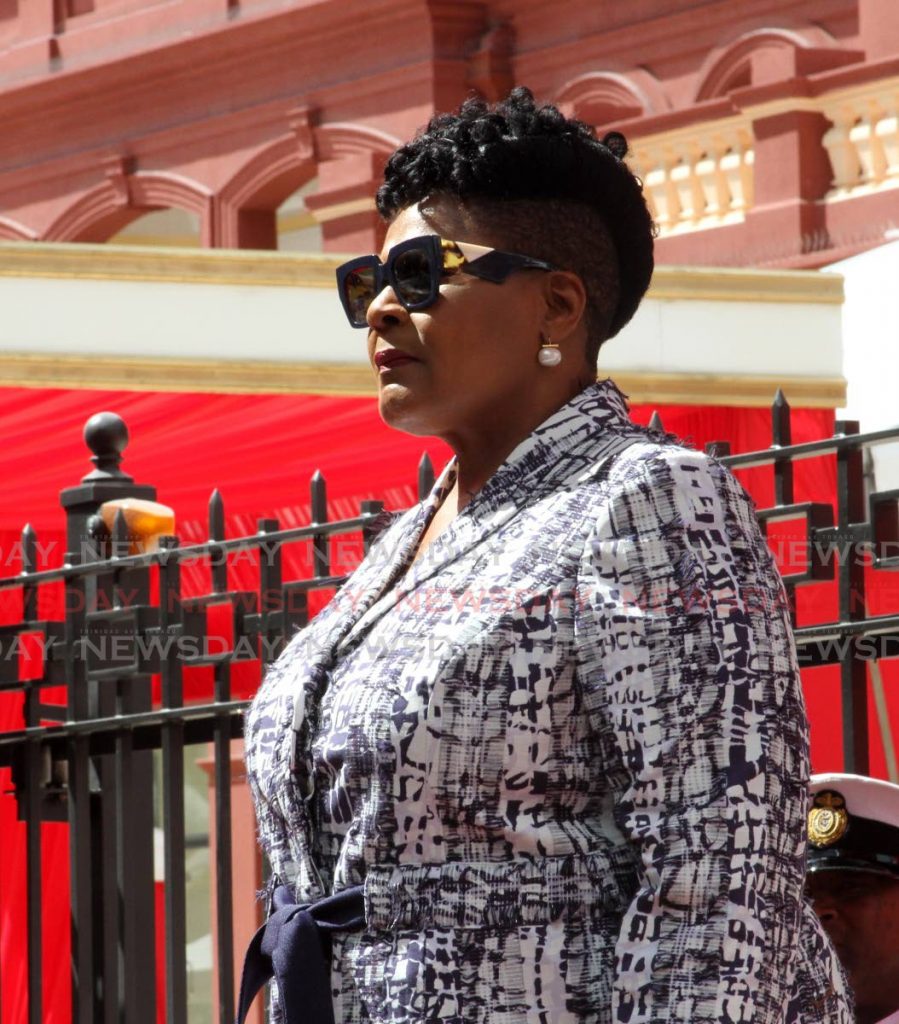SoE POWERS REVEALED

NINETEEN hours after the President proclaimed a State of Emergency in Trinidad and Tobago, a legal notice giving effect to Government’s curfew measures was released.
The emergency powers regulations 2021 outline those activities allowed between the hours of 5.01 am to 8.59 pm, when the country is not under curfew.
There was some concern during the day that the emergency powers regulations had not been made public, leading to uncertainty.
Outside the curfew hours of 9 pm-5 am, no one can gather in groups over five or be at any workplace unless considered an essential service, as well as measures that were already covered by the public health regulations.
New restrictions include no exercising or drinking in public or operating any sporting club.
New public health regulations were also issued, taking effect from Sunday to July 4.
However, the emergency powers, signed by President Paula-Mae Weekes, did not give an end date, only saying they “shall have effect during the period of public emergency.”
The Prime Minister announced the decision on Saturday afternoon during a press conference at the Diplomatic Centre in St Ann's.
The SoE is an escalation of the Government's response to the latest wave of covid19 cases, which threaten public health.
Dr Rowley said it was to ensure people have fewer opportunities to congregate and spread covid19.
He also warned, "If you don't have to be out for exempted reasons, you stay home under the force of law."
In the proclamation, Weekes said, "I hereby declare that I am satisfied that a public emergency has arisen as a result of the outbreak of an infectious disease (covid19) and a state of public emergency exists in the Republic of TT."
The proclamation was dated May 15.
Essential services remained the same, including the Judiciary, emergency agencies, the Houses of Parliament, diplomatic corps, health services, the prisons, financial and banking services and supermarkets and pharmacies, including those services and classes of workers who were covered in the previous regulations.
There are also exemptions for essential services during curfew hours.
It also gives the Commissioner of Police permission to vary the curfew times.Under the emergency powers regulations, the commissioner is authorised to restrict anyone from being in a public place without his permission.
He and his officers are also authorised to arrest anyone in breach of the regulations or order them to disperse or return to their homes.
Police are also allowed to arrest without warrant if they suspect someone is acting in a manner prejudicial to public health, safety or public order and can use "reasonable force."
Women are to be searched by a woman police officer. Drivers are also under obligation to stop if ordered by a police officer.
The Defence Force was also given certain powers under the SoE regulations.
These include being ready to assist if called on by the Police Commissioner. They also have powers of arrest similar to those of the police.
Anyone who breaches the SoE regulations isliable, on summary conviction, to a fine of $250,000 and imprisonment for six months.
Earlier in the day, Oropouche East MP Roodal Moonilal told Newsday the PP government had regulations in effect “almost immediately” in 2011.
“That is the job of the Attorney General,” Moonilal said. “I remember very well that Mr (Anand) Ramlogan and others worked tirelessly to ensure that the regulations were in place as soon as we determined that we call a state of emergency.
“We had a much more efficient system in place and much more competent people.”
President of the Law Association Sophia Chote, SC, was also waiting for the SoE regulations.
“I know the curfew is supposed to go into effect tonight (Sunday). But I would have hoped that it would have been given in such a timely fashion that people could be adequately notified and the information disseminated so that everyone would know what the regulations are, or have a fair idea of what they say, so they could regulate their activities accordingly,” she told Newsday in a phone interview.
Chaguanas West MP Dinesh Rambally called on the Attorney General to “act with expedition in the interest of the citizenry.”
“The announcement of a state of emergency without accompanying regulations has created an atmosphere of uncertainty within society,” Rambally said earlier in the day. “It is incumbent upon any reasonable government and an Attorney General who respects the rule of law to promulgate and publish these regulations urgently.
“Citizens must know how to conduct themselves and have sufficient time to prepare for the impending restrictions of rights and freedoms.”
Moonilal said none of these measures would have been necessary had government used its powers of diplomacy to secure vaccines. He said there were two unpardonable sins which government had committed – refusing the help of the private sector and scoffing at vaccines coming out of India as gifts.
“The Opposition raised the matter of vaccination on December 9, the same day that England began to vaccinate. Government did not embark on a competent and proactive strategy to procure vaccines.
“This would have been preventable had the population been properly vaccinated, had the government worked with the private sector to get vaccines, had it made an early request to India for vaccines.
“The Prime Minister could have gone in a shipyard in Australia to procure boats, he could have found himself in a boardroom in Houston, but he could not find himself in a boardroom to procure vaccines. If procurement of vaccines was linked to a gas deal or buying a boat, TT would have been fully vaccinated today.”


Comments
"SoE POWERS REVEALED"